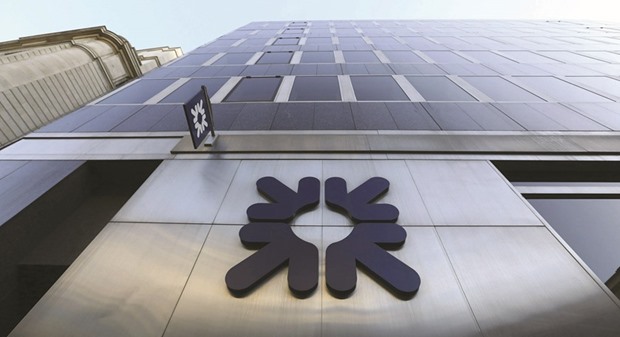The UK lenders may face further delays before they can sell risky debt required by regulators because of a market rout and the nation’s possible exit from the European Union. Royal Bank of Scotland Group, Barclays and HSBC Holdings have all voiced concerns about a Europe-wide slump in issuance of contingent convertible, or CoCo, bonds after a selloff caused by weaker industry earnings and tighter regulations.
These challenges are compounded for the UK lenders by uncertainty in the run-up to the June 23 vote on whether to leave the EU. “Why would I buy into a CoCo just ahead of the referendum?” said Jochen Felsenheimer, the Munich-based managing director of XAIA Investment GmbH, which oversees €2.3bn ($2.5bn) of assets.
“If there’s a Brexit it will be a fundamental shock for the whole economy.” A decision to leave the 28-nation EU would triple the chance of a UK recession, according to a Bloomberg survey of economists.
An economic slowdown would spur bad loans and dent banks’ revenue, raising the risk that capital regulations would prevent coupon payments on additional Tier 1 notes, the most recent version of CoCos sold by banks.
Issuance of additional Tier 1 bonds, or AT1s, in Europe plunged to €2.4bn in the first two months of 2016 from €10.5bn a year earlier, according to data compiled by Bloomberg. The last sale by a UK bank, HSBC, was in September.
The AT1 market is “deeply dysfunctional right now,” Iain Mackay, HSBC’s finance director, told investors last week.
The lender has to issue about €7bn of the bonds by 2019 to meet new rules, the most among European banks, according to debt-research company CreditSights. Banks’ riskiest debt has lost about 6% this year, based on a Bank of America Merrill Lynch index, with a price slump largely erasing 2015’s market-beating returns.
Yields on bonds issued by Barclays and Deutsche Bank roughly doubled earlier this year to as high as 13%. “What we have here is a fundamental sell-off that, to be honest, surprised us and surprised many,” Steven Penketh, Barclays’ head of capital markets execution, said on a March 1 call. Prices may improve “as the market generally settles down after what is frankly a very fractious period,” he said.
Lenders are taking other steps to bolster capital, with Barclays cutting its dividend and RBS selling its Williams & Glyn unit.
UK banks also have some breathing room because of adequate existing buffers and the phased introduction of new requirements through 2022. “We could afford to be pretty quiet in the second and third quarters, if the market wasn’t there for us,” Lloyds Banking Group’s Group Corporate Treasurer Toby Rougier said in a post-earnings call last week. UK banks may weather an EU exit because of strong capital bases and domestic-focused businesses, said Christoph Hittmair, who oversees new issuance for bank clients as head of HSBC’s financial institutions group. High coupons will also aid sales of risky bonds, he said.
“There are investors who have plenty of cash to put to work,” he said. “If people see a strong order book for the first bank which comes back, then that could lead to a secondary market rally too.” BNP Paribas yesterday sought to reopen the market for subordinated European bank debt, with a sale of Tier 2 notes.
The deal would be the first since Intesa Sanpaolo sold €1.25bn of AT1s on January 12. A gauge of credit-default swaps on subordinated financial debt was at 217 basis points, down from an almost three-year high of 314 basis points on February 11, according to data compiled by Bloomberg.
Still, the scars from this year’s rout may have reshaped the market for risky bank debt, as general investment funds are no longer interested, according to Wee Mien Cheung, who oversees about 15bn euros of debt at Delta Lloyd Asset Management in Amsterdam.
Any attempts by UK lenders to lure investors back to the market will probably have to wait until prices stabilise and votes in June’s Brexit poll are all counted, according to RBS’s Chief Financial Officer Ewen Stevenson.
The Scottish bank plans to issue about £2bn of additional Tier 1 notes this year. “Markets are not effectively open,” Stevenson said on an earnings call. “For us and the other UK banks, the AT1 market is going to be a second-half-of-the-year opportunity.”

A Royal Bank of Scotland building is seen in London. RBS, Barclays and HSBC Holdings have all voiced concerns about a Europe-wide slump in issuance of contingent convertible bonds after a selloff caused by weaker industry earnings and tighter regulations.
